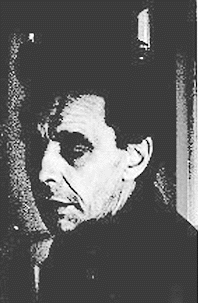Ur-Beat
Before Kerouac and Ginsberg
By Harvey Pekar, Fri., Nov. 14, 1997
|
|
While Huncke directed a great deal of attention to obtaining narcotics and sex, which resulted in his incarceration off and on for years, and caused him to lead an extremely unstable life, he also devoted considerable attention to writing. He wrote for catharsis but had serious literary ambitions himself, although it isn't made clear in this volume how he became interested in literature, having dropped out of high school in his sophomore year.
Several volumes of his work had been published prior to his death. The Herbert Huncke Reader (Morrow, $24 hard) contains a large chunk of his output, including "Huncke's Journal," "The Evening Sun Turned Crimson," "Guilty of Everything," and some uncollected work. They consist of short, mostly autobiographical pieces and deserve attention for aesthetic, historical, and sociological reasons. He led a life that had much in common with Jean Genet's.
Huncke had an original style which combined rather formal and colloquial elements reflecting both his middle-class Chicago background and later days as a bohemian. In addition to writing direct, straight-ahead prose he employed fragmented automatic writing technique:
"EASTER SUNDAY MORNING -- NOT QUITE DAYLIGHT -- A LARGE moon rides the sky since early yesterday evening -- first a soft glowing spot of white cloud-later-clouds gray moving-breaking into lacelike patterns -- the moon-silver and moonlight -- into the hours after midnight -- "
Though he first went on the road at the age of 12 and did not finish high school, Huncke was a competent technician and lyrical, evocative writer. He was given to making wry observations and registering complaints about his mistreatment by others, but could be amoral and took advantage of, even stole from, his friends. Often, however, he was quite helpful and sympathetic to others. Benjamin Schafer, the book's editor, includes in his afterword a touching account of Huncke's aiding him during a bleak period in his life. Huncke hated 9-5 restraints and sacrificed much to escape them, including, ironically, his freedom, spending a great deal of time in one of the most restrictive of environments -- prison.
From historical and sociological standpoints Huncke's work has considerable value. Few men who engaged in hustling and criminal behavior of one sort or another had his vivid powers of description. He provides us with colorful, if grim, accounts of bohemians living on the edge, of the difficulties they face and their attempts to cope with them, and even includes some rich paragraphs detailing his work as a merchant seaman. At times he was filled with despair, as when he was busted just after he'd gotten out of jail: "I wanted to kill myself. Thoughts of disgust, anger, frustration, confusion, and a complete physical let-down had me exhausted. At one point, I promised myself I'd do this bit and when I'd get out, I'd disappear down at the Bowery -- anywhere -- never show my face to my friends again, sort of fade into nothingness. What the hell; I'm old anyway. Fuck my writing. Fuck me. Fuck the world. Jail again-motherfucker. Why? Why? Why? Actually whose business but my own if I use drugs or poison?"
But Huncke did not give in. He developed a viable lifestyle, staying more or less within the law in the 1960s and, partly due to his charm as a storyteller, developed a following as a writer and "character." At the end of his life the Grateful Dead paid his rent at the Chelsea Hotel and he lectured at colleges. Huncke did it his way and lived to a ripe old age in the process.









